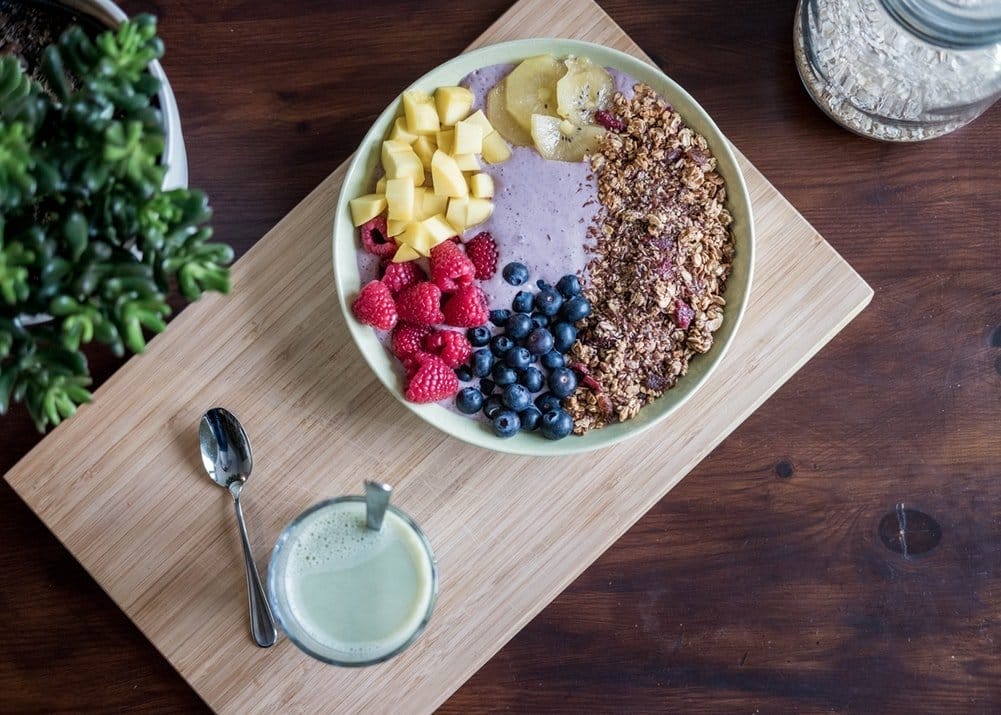In an effort to lose weight as fast as possible, it’s a common thing to see people under-eating or using fad diets that result in big calorie deficits. However, doing this can certainly be detrimental to your health.
Not only will you lose some fat, but you will also lose muscle mass and there will be a big reduction in energy levels and performance in everyday life activities, and in the gym.
Low Carb diets are extremely common – to the point people become complete carbophobes. But carbs aren’t the enemy! It is important to understand what carbs actually are and what they do for your body and performance. Here’s everything you need to know about carbohydrates function and effect on our health and performance…
Carbohydrates 101
Carbohydrates are an essential part of an individuals’ diet – that is why its classified as a ‘Macronutrient’ along with Fat and Protein. Apart from providing energy for our workouts and daily activities, healthy carb sources also supply fuel for the central nervous system and play an important role in brain function. Therefore, cutting a Macronutrient out of your diet is both unnecessary and can lead to serious problems.
Simple Vs. Complex Carbs
Depending on the structure, carbs can be classified as simple or complex. No matter what type of carb it is, the body eventually breaks them down into glucose. Glucose is our body’s favourite form of fuel – the primary source of energy for all of our cells, from your brain to your muscles.
The main difference between simple and complex carbs is that complex carbs take our bodies longer to digest and breakdown to glucose meaning there isn’t a sudden rise in insulin levels and big rush of glucose into our blood stream that occurs with simple carbs.
Simple carbs are often found in the form of sugars and in most ‘processed’ foods. If your diet is high in these types of carbs, you may find you often feel groggy, have extreme highs and lows in energy.
Complex carbs are found in foods like vegetables and fruits. Consuming carbs from these sources can help control insulin response, energy levels, and body composition.
How does the body use carbs?
Carbs are digested during meals and broken-down by the body and enter the bloodstream as glucose, a simple sugar. Cells use glucose as fuel. Insulin is a hormone that causes cells to absorb glucose from the blood.
A high insulin level will “drive” glucose into cells, lowering the blood glucose concentration. Insulin production is regulated by the blood glucose concentration: as blood glucose concentration rises, insulin production increases, and vice versa.
Ingestion of simple carbs results in a rapid spike in blood glucose concentration. This, in turn, causes insulin levels to rise dramatically to combat this sudden rise. Glucose is forced into the cells at a high rate. More complex carbs do not stimulate as severe an insulin response as complex carbs and take longer to break down into glucose. Therefore, there isn’t such fast rise in blood glucose levels.
The Right Way To Fuel Your Workouts
Eating foods that have simple carbs, immediately after intense workouts like CrossFit, Assault Concept or Triangle Conditioning will be beneficial. At this point the muscle cells are in an anabolic state – i.e. actively engaged in protein synthesis refuelling, rebuilding and growing!
However, when not exercising, the muscles don’t require refuelling and have enough stored energy in the form of glycogen. If there is a sudden rise in blood glucose as a result of eating simple carbs, then the glucose will be converted to fat cells.
The amount of carbs you should consume is dependent on your body size and energy output throughout the day. If you train a lot, you will need more carbs. However, this doesn’t mean you should ignore where your carbs come from; everyone could benefit from trying to get the majority of their carbs from vegetables and fruits as much as possible. These types of foods are also high in fibre – key to good nutrition!
So, What Happens When You Aren’t Adequately Fuelled?
If you severely restrict your calorie intake or carb intake, there is a high chance you won’t get enough nutrients or glucose in your blood stream. This can worsen if you participate in rigorous workouts, like CrossFit, Assault Concept or Triangle Conditioning that will see you use up your energy supplies much faster.
A condition known as Hypoglycemia can occur – ever experienced the ‘whitey’ when training intensely? That feeling of light headiness, headaches, nauseous.
Hypoglycemia is caused by low levels of blood sugar in the blood stream. Your body needs blood glucose in order to carry glycogen to cells for energy. This energy is used for organ function and muscle activity. If you use up all this glycogen store, then one way to get instant energy into the bloodstream is to digest sugar rich foods.
That’s often why you see athletes, in particular endurance athletes, eating things like jelly babies or sports gels when training or competing. Within minutes, your body will be replenished, and your energy levels return to normal.
Key Takeaways
- Instead of completely cutting out a whole macro-nutrient from you diet, your goal should be to optimise the amount of carbs that are being stored as glycogen and minimise excess carbs that contributes to fat stores.
- Opt for whole, unprocessed foods as they contain fibre, vitamins, minerals and are more complex.
Do you want to learn more about the role nutrition plays in your performance? Take a look at our article discussing why hydration is key to sports performance. Or, if you have any further questions about how to fuel your body for your specific fitness goals and lifestyle, get in touch with one of our coaches!




